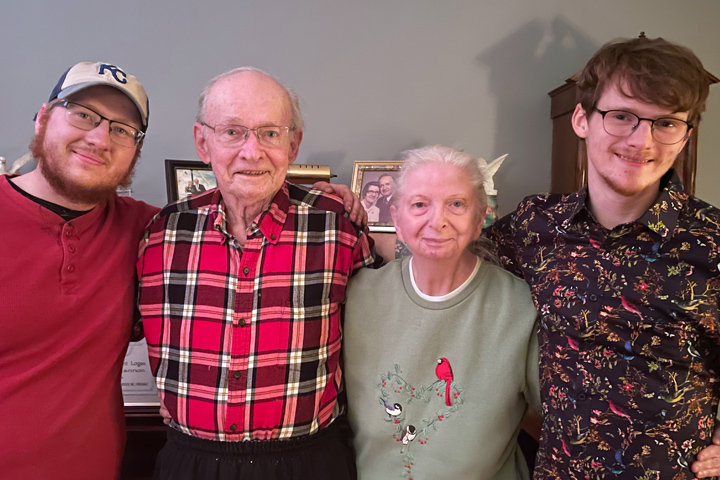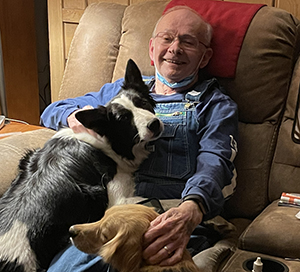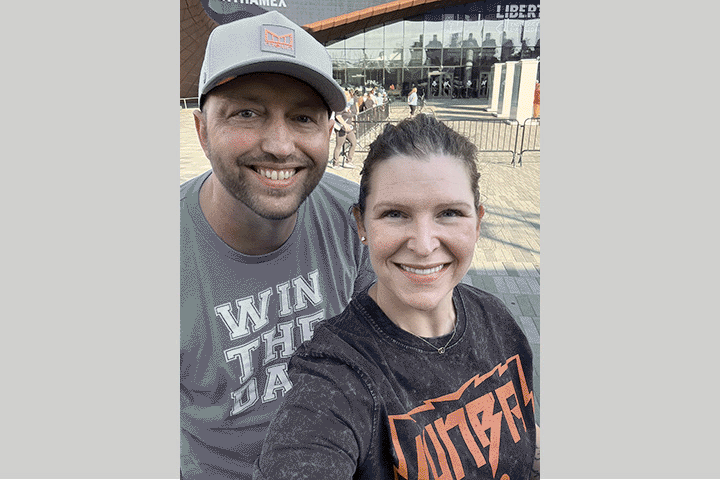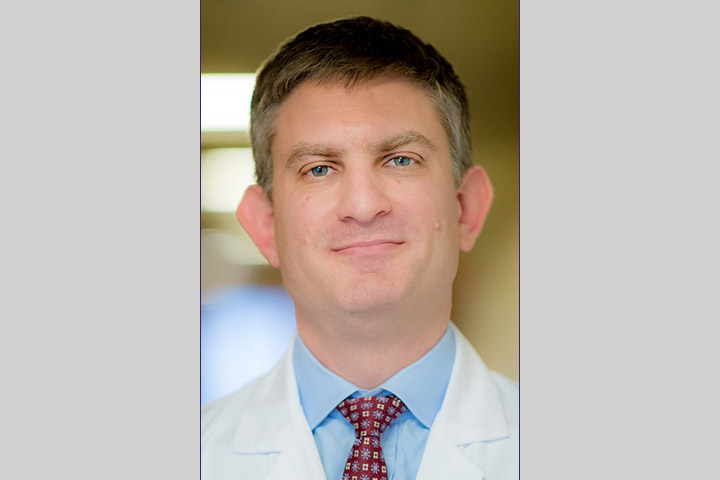A Clinical Trial Gives Me Hope

- Stage II pancreatic cancer diagnosis
- Chemotherapy before Whipple procedure
- Recurrence in my lung
- On a clinical trial
I’m one of the lucky ones whose pancreatic tumor caused symptoms early on.
I had been feeling ill and thinking it was a side effect of a recent flu shot, when my wife said that she thought I looked as yellow as our yellow house! A quick visit to the doctor’s office led to a series of tests with the ultimate diagnosis of stage II pancreatic cancer in November 2017.
Treatment Starts
I went to University of Kansas Medical Center (Kansas City, Kansas) and met Dr. Anup Kasi, my oncologist, and Dr. Sean Kumer, my surgeon. The tumor was close to major blood vessels, so chemotherapy was required to shrink the tumor before I might be a candidate for the Whipple procedure. I responded well to FOLFIRINOX and was fortunate to undergo the Whipple procedure in August 2018.
Dr. Kasi declared me cancer free shortly thereafter, but I continued to have regular scans.
The Cancer Comes Back
Unfortunately, in November 2019, a mass appeared in my right lung, which the doctors monitored for a couple of scan cycles, then decided to biopsy in May 2020.
After the biopsy, the doctors debated a bit, but the final diagnosis was stage IV metastatic pancreatic cancer. My family and I felt deflated. We know how hard pancreatic cancer is to fight, and stage IV felt overwhelming. Honestly, we had “hoped” for lung cancer instead— thinking the treatment might be easier to manage and that the prognosis would be better.
At that point, Dr. Kasi began to explore the idea of radiation for the three areas of pancreatic cancer activity (one in the middle lobe of the right lung, as well as nodal activity in the hilar lymph nodes and mediastinal lymph nodes).
I met with Dr. Gregory Gan, the radiologist, and even had radiation scheduled, but the doctors continued to look for other options—in particular a clinical trial. Even the radiologist suggested that would be a preferable route.
Exploring all options, my oncologist submitted my tumor for genetic testing to qualify me for a clinical trial, but I was not a candidate for that particular trial.
In September 2020, I entered a different clinical trial and I’ve been blessed with incredible success.
Life on a Clinical Trial
Every week, I head to chemotherapy and receive gemcitabine and GP-2250. I feel fortunate that my side effects are somewhat mild—fatigue, a bit of neuropathy in my hands and feet, and the occasional mouth sore. It’s all been worth it.
In nine months, my primary tumor has gotten smaller and stabilized and the nodal cancer activity has gone into remission. PET scan results show the remaining tumor area to be in line with the reactivity of the rest of my body.
I am grateful for the impact of the clinical trial as it has given me my life back—I still get tired from time to time, but I’m able to take care of my wife and enjoy time with family. I’m 79 and have plans to be around until I’m at least 93! Next goal: get back to walking my dogs.
I am grateful to all the staff at the University of Kansas Medical Center. Their team approach, willingness to explore clinical trial options to find the most positive outcomes for their patients, and their compassion is unmatched.
Dennis passed away after a seven-year-long battle with pancreatic cancer. He was proud of his participation in clinical trials, whether they helped him or advanced the science. We offer our deepest sympathy to his family.




